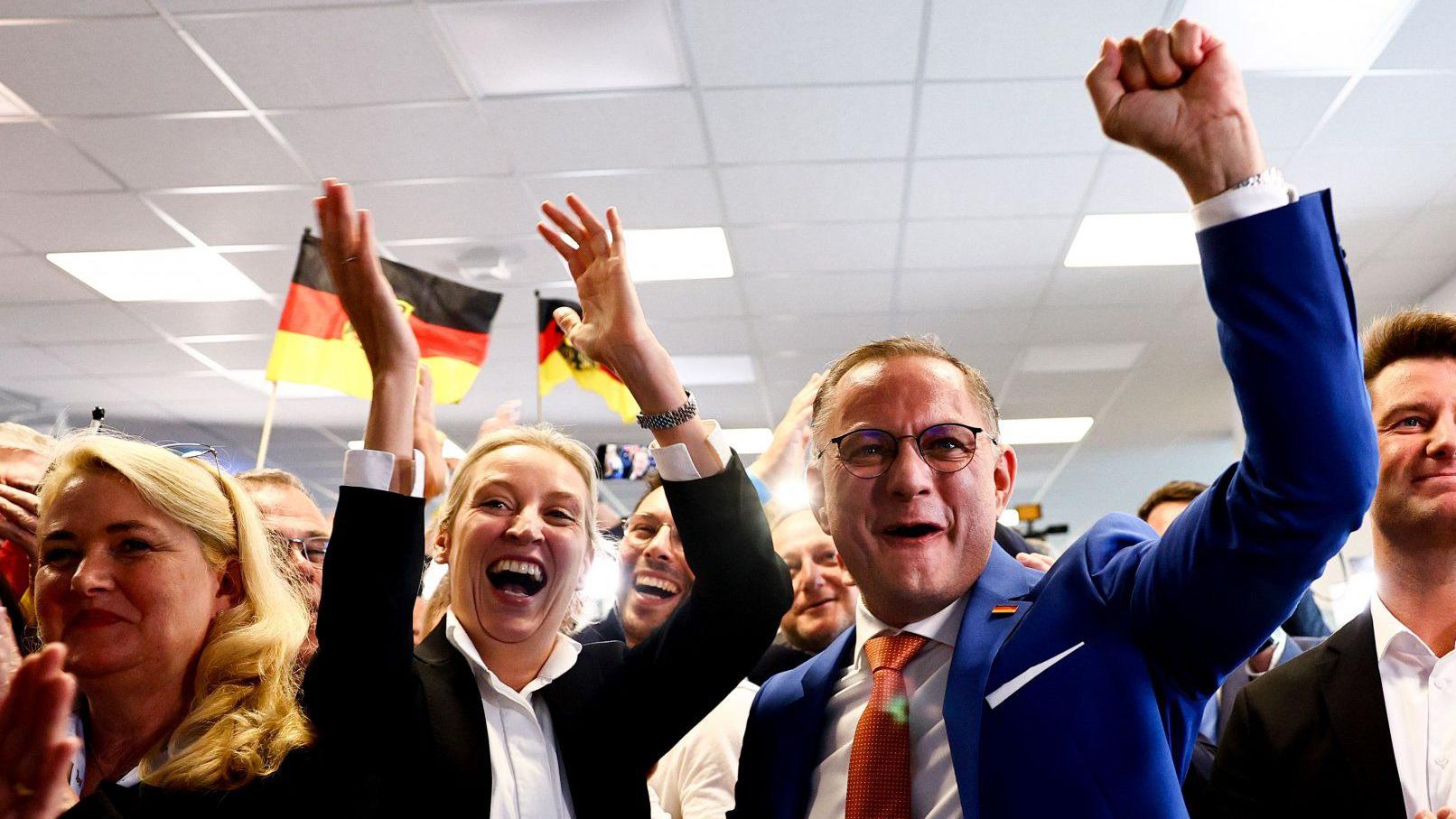A significant political change is taking place throughout Europe, as right-wing populist parties are experiencing remarkable growth. Recent surveys show that these groups have, for the first time, reached the highest levels of national popularity in Germany, France, and Britain. This represents a crucial point in contemporary European politics, confronting traditional, mainstream parties’ dominance and indicating a new phase of political division and reorganization. The rise of these parties is a multifaceted development influenced by various interconnected factors, such as economic discontent and cultural unease.
En Alemania, el partido de extrema derecha Alternativa para Alemania (AfD) ha superado recientemente a los partidos conservadores convencionales, convirtiéndose en el más popular según una nueva encuesta. Este resultado es especialmente notable debido a la antigua sensibilidad de Alemania hacia las ideologías de extrema derecha. La AfD, que comenzó como un partido anti-Euro, se ha transformado en un movimiento populista con una postura inflexible sobre la inmigración y un escepticismo profundo hacia la Unión Europea. Su ascenso se percibe como un desafío directo al consenso político del país de la posguerra.
The scenario in France is just as severe. The far-right National Rally (Rassemblement National) has consistently maintained a significant advantage in national surveys for a period. This organization, with its recent leadership change, has aimed to soften its public perception and extend its attraction beyond its usual supporters. Their achievements are linked to a strong blend of anti-immigration discourse, resistance to European unification, and an emphasis on economic concerns affecting daily life. The party’s prevailing influence has significantly affected the political discourse and tactics of other political groups.
On the other side of the English Channel, the political scene in Britain is experiencing significant change. A right-wing populist group, Reform UK, has been leading national surveys, surpassing the traditional Conservative and Labour parties. This rise is driven by extensive public dissatisfaction with the existing government, a wish for tougher immigration policies, and a common perception that mainstream politicians are disconnected from the worries of ordinary citizens. Reform UK’s progress has created a stir within the British political scene.
The combined achievements of these groups in three key European countries are not disconnected incidents. They reflect a widespread movement of discontent with the current situation. An increasing number of voters feel marginalized by globalization and are challenging the advantages of multiculturalism and unrestricted borders. The economic strategies of centrist administrations, frequently seen as neglecting the difficulties faced by the working population, have also played a role in this change in the political landscape.
Many of these parties have successfully positioned themselves as the voice of the “common people” against a “corrupt elite.” They use populist rhetoric to create a clear division between a supposedly pure national identity and a cosmopolitan establishment that they claim is beholden to international interests. This narrative, disseminated effectively through social media and alternative news channels, resonates with voters who feel alienated and unheard by traditional political institutions.
The political ramifications of this populist surge are far-reaching. In Germany, the rise of the AfD makes it much more difficult for traditional parties to form stable governing coalitions, leading to a more fragmented and unpredictable political climate. In France, the National Rally’s popularity could lead to a significant political upheaval in future elections, potentially altering the country’s direction on both domestic and European policy. In Britain, the rise of Reform UK threatens to permanently reshape the two-party system.
This phenomenon also has significant implications for the European Union. Populist parties in these key nations often share a Eurosceptic or outright anti-EU stance, challenging the very foundation of the European project. Their success could empower similar movements in other member states and lead to a more inward-looking, protectionist Europe. This could have a profound effect on everything from trade agreements and migration policy to the continent’s collective response to international crises.
The rise of far-right populism serves as a warning for Europe’s traditional parties. It indicates that a significant portion of voters believes their worries about matters such as immigration, national identity, and economic stability are not being properly handled. To reverse this trend, mainstream parties need to discover fresh approaches to engage with these voters, restore public confidence, and provide convincing solutions to the challenges pushing people toward radical options. The political destiny of the continent might largely rely on their capacity to adjust to this evolving situation.




